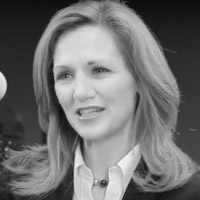A Thorny Dilemma: The Ethics of Mortgage Walkaways

A Thorny Dilemma: The Ethics of Mortgage Walkaways
By Steve Merrel, Partner
Willow Ridge Capital Advisors
In the aftermath of the housing bubble and the lending frenzy that fueled it, more and more families find themselves stuck owing a lot more on their mortgages than their homes are worth. Pressed with rising mortgage rates and falling incomes, many of these families face a dilemma: Should they sacrifice to pay their mortgage even though their home’s value may not recover for several years? Or should they simply walk away?
According to the Los Angeles Times, many people are choosing to walk away. The report quotes a recent University of Chicago study which found that 26% of all foreclosures are “strategic”, meaning they are calculated moves to get out of upside-down mortgages by people with the ability to pay.
The pressure can be intense. As the LA Times article states:
In some parts of California and Nevada, more than half of all households have negative equity. In a few localities, the size of the equity deficit is staggering: In the Salinas, Calif., metropolitan area, for example, the median equity for people who bought their homes in 2006, near the peak of the boom, is now a negative $214,305.
Reality check
If you haven’t personally faced this dilemma, it may be difficult to fully appreciate the anger and fear many of these people feel. To help make this more real, let’s consider the case of an actual young couple caught in this situation. Their father, a very good friend of mine and well-respected CPA, recently told me, “My kids bought a house at the peak of the market. They now owe $300,000 more on the home than the home is worth. Why shouldn’t they walk away? The bank certainly wouldn’t hesitate if the roles were reversed.”
The moral dilemma
The father and his children find themselves on the horns of a dilemma. On one hand, the young couple made an agreement with their lenders to repay a loan. On the other hand, the economics of the transaction have changed putting them in a very precarious financial position. Should they feel an obligation to the lender beyond the collateral value of their home? What are the moral or ethical implications for their actions?
One person’s view
These are difficult questions and they sometimes evoke strong emotions. One such person recently expressed a very popular argument for walking away from upside-down mortgages when she wrote:
Mortgages are not ethical documents, they are legal contracts. The typical residential mortgage for an owner-occupied home gives the borrower two options: pay on time and in full, and keep the paper title to the house, and full entitlements to any appreciation upon its later sale after the mortgage is satisfied; or, stop making payments, and hand the keys back to the lender.
Morality and ethics don’t even enter the equation. Either option is perfectly legal for the borrower, and the only criteria should be business-based. All the ethics you need are contained within the four corners of the pages of the mortgage contract.
A different opinion
Personally, I disagree. Contracts are ethical documents. They formalize a promise to perform between two parties. They are not intended to preempt ethics or provide cover for moral lapses. The terms of the contract layout the boundaries of behavior between the two parties. The way the parties behave within the terms of the contract is very much driven by ethics.
In the case at hand, a mortgage is a contract that entails a promise to pay. The collateral provides additional or supplemental security for the lender in the event the borrower loses his ability to pay. It is not intended to be an escape hatch for a borrower who decides payment is inconvenient. Therefore, in my opinion, strategic walkaway is a breach of ethics.
Muddy waters
With these opposing opinions in mind, let’s go back to our young couple and muddy the waters a little. The young couple got into their home using an adjustable-rate mortgage. Their plan was to refinance their mortgage to a fixed-rate once the value of the house increased enough for them to qualify. Now, with the home’s value depressed, they may never qualify. If interest rates rise, they may be forced into foreclosure anyway. Should they stay and “tough it out” risking years of financial insecurity for the sake of an unfortunate loan, or should they walk away?
Another person I spoke with about this issue said, “A few years ago I told my kids to ‘hang in there’ and pay their debts. They lasted a couple of years and finally ended up declaring bankruptcy anyway. If I had it to do over, I would give them different advice.”
The question at hand
Which brings us to the question at hand. What is the responsibility of borrowers? Are they morally justified in walking away? Or do we expect heroic action to sustain the note even when the economics turn upside down? What advice would you give them?
By Steve Merrel, Partner
Willow Ridge Capital Advisors
We hope you found this article about “A Thorny Dilemma: The Ethics of Mortgage Walkaways” helpful. If you have questions or need expert tax or family office advice that’s refreshingly objective (we never sell investments), please contact us or visit our Family office page or our website at www.GROCO.com. Unfortunately, we no longer give advice to other tax professionals gratis.
To receive our free newsletter, contact us here.
Subscribe our YouTube Channel for more updates.

Alan Olsen, is the Host of the American Dreams Show and the Managing Partner of GROCO.com. GROCO is a premier family office and tax advisory firm located in the San Francisco Bay area serving clients all over the world.
Alan L. Olsen, CPA, Wikipedia Bio

GROCO.com is a proud sponsor of The American Dreams Show.

The American Dreams show was the brainchild of Alan Olsen, CPA, MBA. It was originally created to fill a specific need; often inexperienced entrepreneurs lacked basic information about raising capital and how to successfully start a business.
Alan sincerely wanted to respond to the many requests from aspiring entrepreneurs asking for the information and introductions they needed. But he had to find a way to help in which his venture capital clients and friends would not mind.
The American Dreams show became the solution, first as a radio show and now with YouTube videos as well. Always respectful of interview guest’s time, he’s able to give access to individuals information and inspiration previously inaccessible to the first-time entrepreneurs who need it most.
They can listen to venture capitalists and successful business people explain first-hand, how they got to where they are, how to start a company, how to overcome challenges, how they see the future evolving, opportunities, work-life balance and so much more..
American Dreams discusses many topics from some of the world’s most successful individuals about their secrets to life’s success. Topics from guest have included:
Creating purpose in life / Building a foundation for their life / Solving problems / Finding fulfillment through philanthropy and service / Becoming self-reliant / Enhancing effective leadership / Balancing family and work…

MyPaths.com (Also sponsored by GROCO) provides free access to content and world-class entrepreneurs, influencers and thought leaders’ personal success stories. To help you find your path in life to true, sustainable success & happiness. It’s mission statement:
In an increasingly complex and difficult world, we hope to help you find your personal path in life and build a strong foundation by learning how others found success and happiness. True and sustainable success and happiness are different for each one of us but possible, often despite significant challenges.
Our mission at MyPaths.com is to provide resources and firsthand accounts of how others found their paths in life, so you can do the same.
Legacy of Success | Doug Keyston
Episode Transcript of: Legacy of Success | Doug Keyston Alan Welcome back. I’m here today with Doug Keyston. And he’s a private wealth client advisor here in the San Francisco Bay Area. Welcome to today’s show. Doug Thanks very much Alan. Alan Doug. Can you give me your background? Doug I happy to do…
Entrepreneurs Journey | Steve Cho
Transcript, Entrepreneurs Journey | Steve Cho Alan Welcome back. We have with us today on the show Steve Cho. Steve is the founder of a custom software system. Here in Fremont, California called ASCC. Steve, welcome to today’s show Steve And thank you for having me. Alan So Steve, can you give us some your…
From Mom to CEO | Janet Perry
Episode Transcript of: From Mom to CEO | Janet Perry Alan Welcome back. We’re here today with Janet Perry. Janet is the CEO of the Shabby Apple. And welcome to today’s show. Janet Thank you. It’s good to be here. Alan So Janet, tell me your background. How did you get to where you are…
Finding Your Career | Leni Miller
Episode Transcript of: Finding Your Career | Leni Miller Alan Welcome back. I’m here today with Laney Miller. She is the president and founder at EAA search company that’s focusing on helping individuals find the right type of work. Laney, welcome to today’s show. Thank you. Can you give me your background of how…




